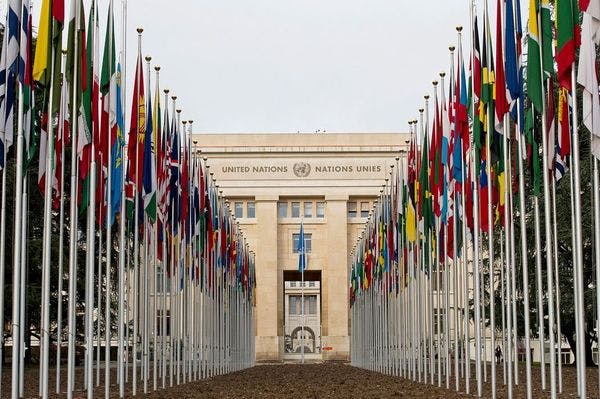L’imposition de la peine de mort pour lutter contre les délits liés à la drogue viole le droit international, selon des experts onusiens
Dans la perspective de la 13ème Journée mondiale contre la peine de mort, observée le 10 octobre, des experts de l'ONU signalent que « les exécutions pour délits liés à la drogue constituent une violation du droit international et sont illégales ». Pour en savoir plus, en anglais, veuillez lire les informations ci-dessous.
Abonnez-vous à l'Alerte mensuelle de l'IDPC pour recevoir des informations relatives à la politique des drogues.
Speaking ahead of the 13th World Day Against the Death Penalty, observed on 10 October, UN experts agreed that "Executions for drug crimes amount to a violation of international law and are unlawful killing".
“Executions for drug crimes amount to a violation of international law and are unlawful killings,” the United Nations Special Rapporteurs on summary executions, Christof Heyns, and on torture, Juan E. Méndez, today reminded Governments. It is estimated that drug-related sentences could account for around 1,000 executions a year worldwide.
“The imposition of death sentences and executions for drug offences significantly increases the number of persons around the world caught in a system of punishment that is incompatible with fundamental tenets of human rights,” the experts said, speaking ahead of the 13th World Day Against the Death Penalty, observed on 10 October.
They noted that more than 30 States have legal provisions providing the death penalty for drug-related crimes, and in certain countries, including Indonesia, China, Iran and Saudi Arabia, such cases make up a significant proportion of the total number of executions.
“Of particular concern is that these arbitrary sentencing regimes exist in several of the very small minority of countries around the world which most frequently resort to capital punishment,” Special Rapporteur Heyns said. “Moreover, in many States where the death penalty is used for drug-related offences, there is not a system of fair trial.”
“The World Day Against the Death Penalty provides an opportunity to reflect on another year in which the number of States that have completely moved away from capital punishment has increased,” Mr. Heyns said. “However, it also prompts scrutiny of the extent to which a small minority of States violate international law by imposing the death penalty for drug offences.”
The International Covenant on Civil and Political Rights* prohibits the imposition of the death penalty for any but the ‘most serious’ crimes. The Human Rights Committee, the body responsible for the authoritative interpretation of the Covenant, has repeatedly made clear that drug offences do not meet this threshold, and that only crimes involving intentional killing can be ‘most serious’.
Click here to read the full article.
Keep up-to-date with drug policy developments by subscribing to the IDPC Monthly Alert.
Thumbnail: Flickr CC United Nations Photo
Sujets
Régions
Profils associés
- United Nations
